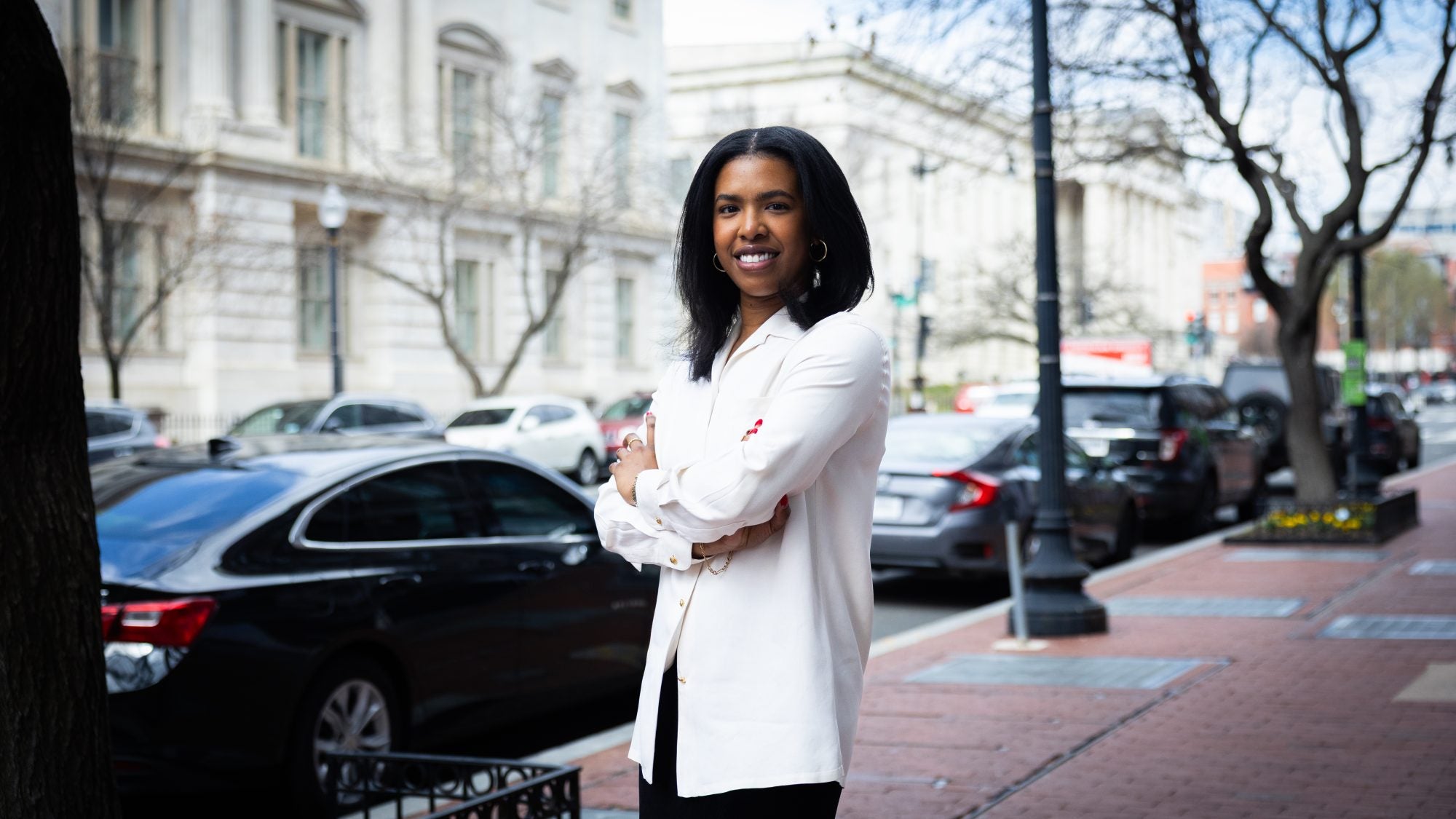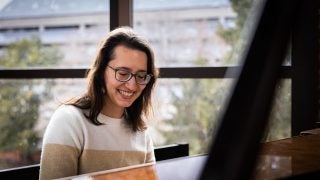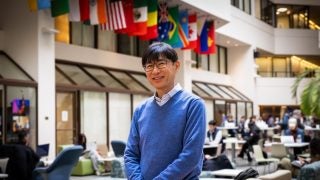This story is part of Georgetown Faces, a storytelling series that celebrates the beloved figures, unsung heroes and dedicated Hoyas who make our campus special.
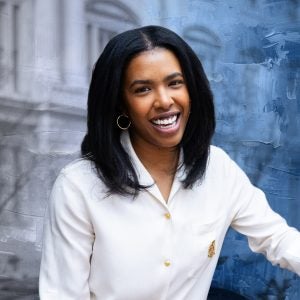
When Valerie Coats walks into the classroom at the DC Jail, she doesn’t see incarcerated individuals in orange jumpsuits. She sees students.
Coats is the program manager for the Prison Scholars Program, which offers year-long Georgetown classes at the DC Jail. She has helped more than 170 students access the program. In working with students, Coats knows the hope and fresh start that education can bring.
“When I look at students in the program, I don’t just see their circumstances — I see who they are, their potential,” she said. “If even one class, one book, one moment of learning can help break the cycle of mass incarceration, then that’s everything.”
Coats had an unusual path to prison education. She began her career in fashion, managing a multi-million dollar sales floor and crafting designer showcases and window displays at Nordstrom.
In 2019, she taught herself the basics of coding and contracted as a web and graphic designer, which brought her to the Georgetown Prisons and Justice Initiative (PJI). She joined the team as the technology coordinator in 2021, helping to integrate more technology into carceral spaces during the COVID-19 pandemic.
The following year, Coats became the site coordinator for the Scholars Program, where she worked to streamline program operations and build relationships with the DC government and the Department of Corrections.
In her role as program manager, Coats has expanded the program to include partnerships with MIT’s Brave Behind Bars, bringing accredited coding classes into the jail, and with American University to launch a music recording project. She’s also collaborated with Georgetown’s Spanish Department to offer the program’s first foreign language course and worked closely with retired Georgetown professor and alumnus Mike Ryan (C’74) to help students build a secure future through financial literacy classes.
For Coats, her work is deeply personal.
“As a Black woman, I often see people who look just like me when I enter these spaces,” she said. “The legal system disproportionately impacts Black and Brown communities and I hope highlighting the talent and intelligence of the students helps break down stereotypes.
If we can shed light on the deeper issues of poverty and access within the criminal legal system, we can encourage a more empathetic and informed perspective.”

What my parents taught me about caring for others: I grew up in a family that valued community activism. We often volunteered together in and around my hometown of Olympia, Washington. We would help prepare and serve hot meals at shelters and donate gift baskets to children during the holidays. In high school, I volunteered as a cheer coach and mentor to young girls, and I also served as the only student advisor for my local school district’s revision of the athletic code.
Olympia is a pretty small town, and I only saw people of color in a small number of leadership roles. This forced me to develop self-confidence and my own sense of self-worth. My parents also always emphasized compassion and wanted my siblings and I to understand that we live in a diverse world with people who deserve respect and kindness. Those values have carried me through this work.
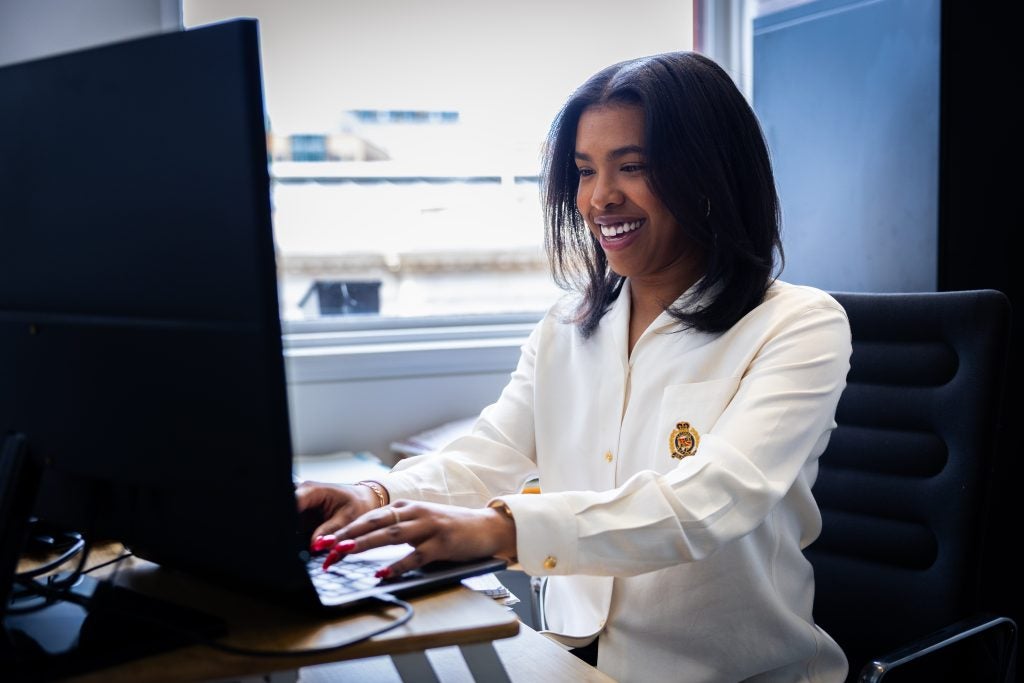
How I got interested in fashion: I subscribed early to editorials like Teen Vogue and Nylon and would make floor-to-ceiling collages on my bedroom wall with magazine pages and cutouts. Putting outfits together was always fun, and I would even help style my friends. I studied fashion merchandising in undergrad at Howard University for two years, and learned so much about the business and industry of fashion. I worked briefly as a fashion editor for a magazine on campus, and volunteered behind-the-scenes for one of our homecoming fashion shows.
Why I switched from coding to the criminal justice system: I was interested in finding creative ways to pursue technology as a career when the opportunity to bring technological solutions to the incarcerated students came about. I joined the team at PJI before the Bachelor of Liberal Arts program launched.
My job was to identify hardware, software and accessories that could be used within the prison where that program occurs, as well as expand technological offerings for the students in the Scholars program. I was also tasked with teaching returning citizens how to develop their technology skills. I did not expect for my role to shift as it has, but I’m grateful for the development of each program and that my contributions have been significant.
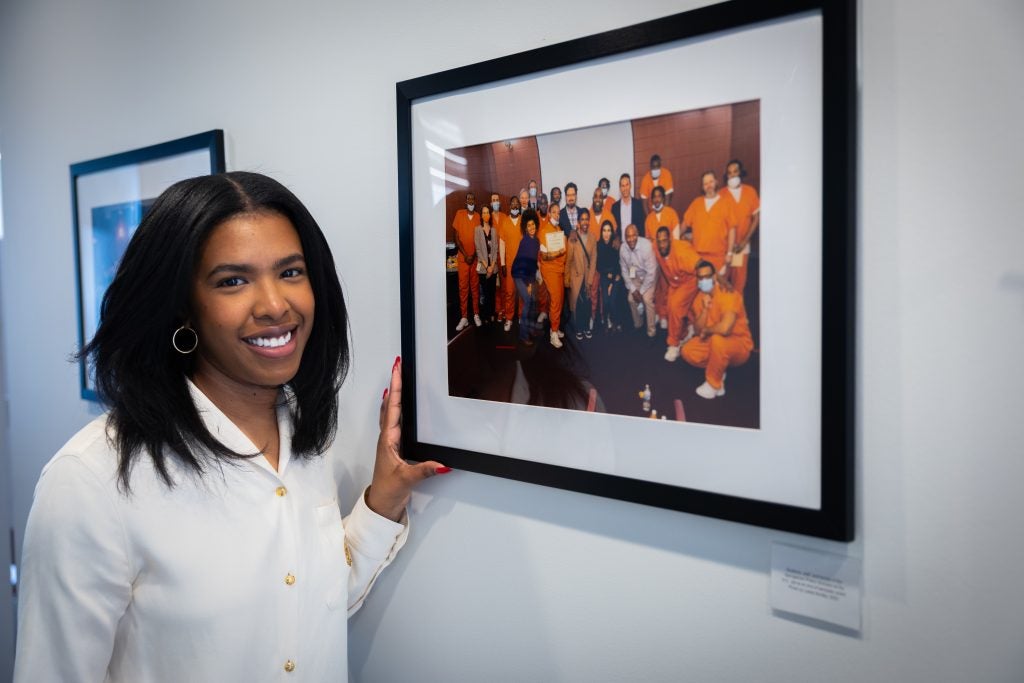
The most powerful thing the program offers: A second chance. I know not everyone inside is innocent, but I also know that people can change. Do we want to hold people to their worst mistake forever? Haven’t we all been given a second chance at some point in our lives?
Education isn’t just about learning — it can be a pathway to lifelong success. Just by existing, the program is showing those who are incarcerated and members of the community that a different future is possible. Many students have never considered higher education as a second chance, much less a career or pathway to success. This exposure empowers them to take charge of their lives — not just be punished for their past.
Something I wish for this program and for prison education: I hope more collaborative efforts emerge between universities and correctional facilities, with support from lawyers and judges. I hope more doors will open for those who are formerly incarcerated, and more people will recognize the potential in those who have been disregarded. What often gets overlooked is that those who are incarcerated are more than their sentences — they are parents, children, siblings and loved ones.
There’s so much more to be done. Let’s focus on building empathy. This will bring communities together and create opportunities for more conversation and connection over these issues. If we can approach these challenges with tolerance and respect, real change is possible.
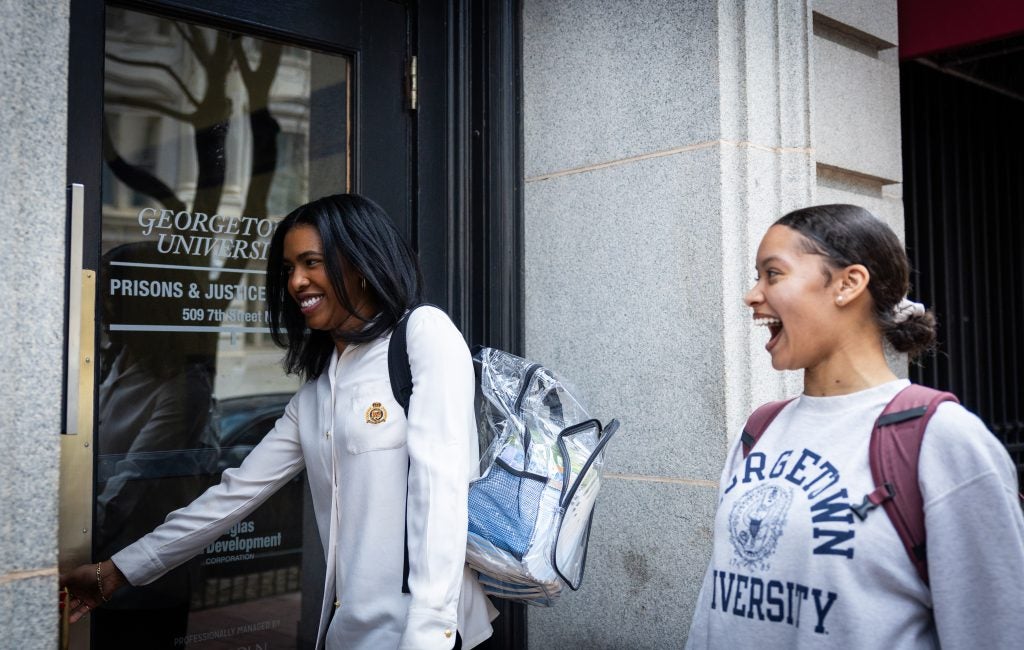
What brings me joy at work: Seeing people make remarkable transformations in their professional and personal lives brings me so much joy. We are living through a uniquely challenging social climate and the tendency to ignore incarcerated populations is ever-present.
I love to see students leave the program and change the hearts and minds of folks who may have otherwise overlooked them. Students are returning to their communities with a drive to create positive change and expose their children and families to different topics they’ve learned about behind the wall.
When I’m not working, you’ll find me: poking around at estate sales or hanging out with my cat, Jerome. I love music, especially oldies, and have been listening to classic jazz and bossa nova lately.
One word that describes Georgetown: Boundless.
By Shanessa Bryant Taylor
